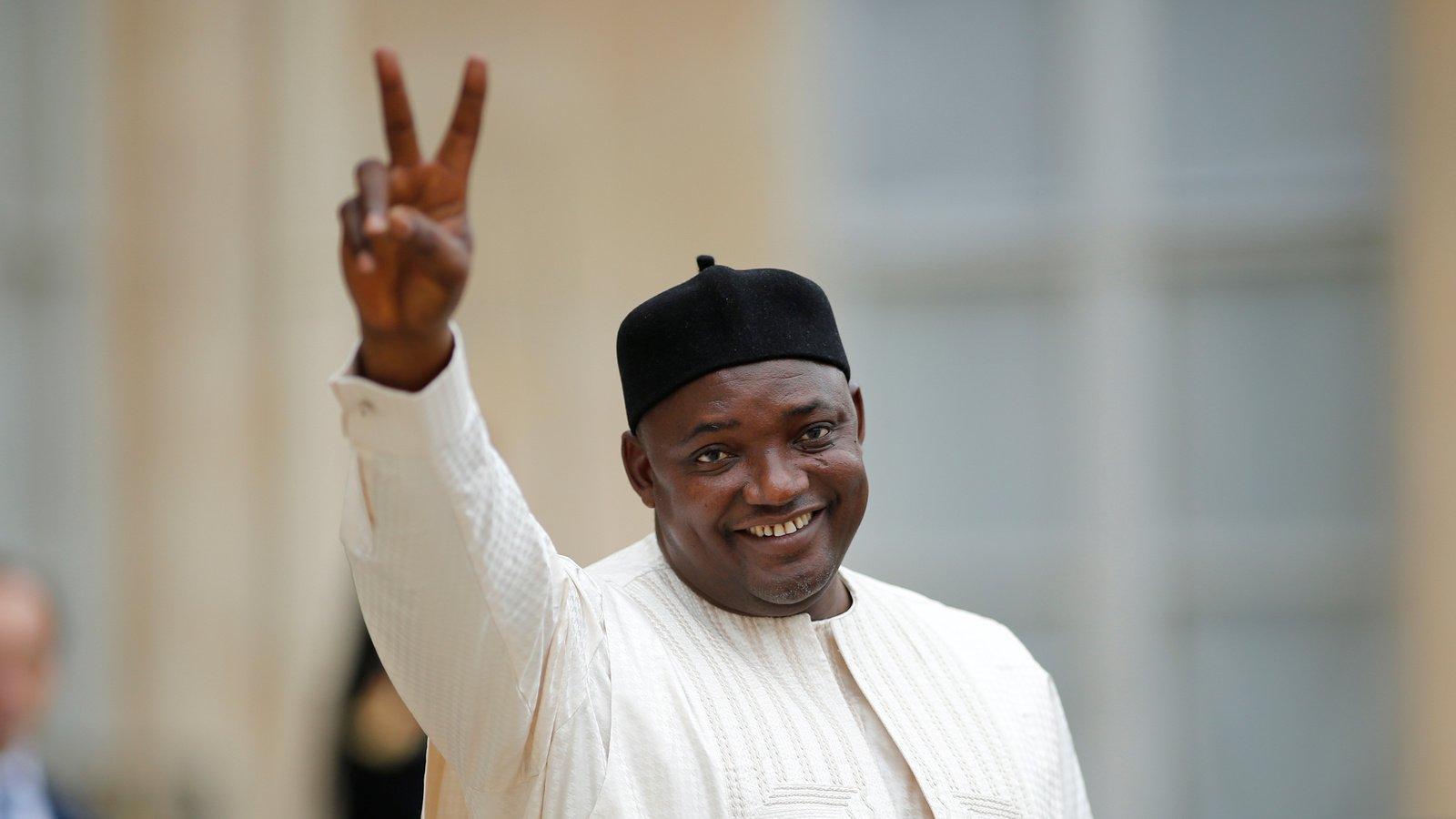By Sulayman Jeng
Africa-Press – Gambia. The Gambia has seen substantial political and social transitions throughout President Barrow’s leadership. Barrow was a symbol of optimism for democratic reform when he first came to office following the historic downfall of longtime tyrant Yahya Jammeh. However, recent indications that he plans to run for a third term are sparking intense discussions both within and outside The Gambia. This debate is not exclusive to The Gambia; rather, it reflects broader political trends in Africa, where constitutional term limits are regularly challenged, with significant repercussions for stability, governance, and public confidence.
Term limits are intended to guard against authoritarianism, promote leadership renewal, and avoid an excessive concentration of power. For instance, Gambia’s democratic institutions may be weakened if President Barrow runs for a third term, particularly if doing so would require amending specific electoral laws in the Constitution. If citizens who voted for change in 2016 believe that the identical governing system they voted to oppose is returning, they may become disillusioned. Similarly, the idea of peaceful and regular transfers of power could be undermined if a successful campaign for a third term sets a precedent for future leaders to manipulate or ignore constitutional constraints.
Societies are frequently polarised by the possibility of a third-term bid, which exacerbates animosity between political players and the general public, and The Gambia is no exception. Civil society groups and opposition parties are likely to view Barrow’s ambition for a third term as a violation of democratic principles. A coalition of opposition leaders united in resistance could result from this. Frustration can turn into unrest when political complaints are not addressed. Communities could become unstable, and ethnic or regional differences could widen as a result of violent clashes between pro- and anti-supporters of a third term for President Barrow. A lack of faith in the government can lead to self-serving actions that damage the executive branch’s reputation and erode trust in the legislative and judicial branches, particularly when they are perceived as being involved.
Seeking a third term can have a significant impact in the Barrow government’s operations. The legislature and executive branch may become more focused on short-term political survival than long-term development planning. Necessary reforms may be postponed or dropped altogether, especially those that require widespread agreement, such as the draft constitution. Funds and administrative resources may be diverted from infrastructure and critical public services to support political campaigns, patronage, or efforts to suppress opposition. Additionally, if skilled public workers are perceived as not fully supporting the third-term goal, they may leave or be marginalised, which would lower the efficacy of governance. The repercussions of eroding democratic norms are not limited to national borders in today’s interconnected world. The Gambia’s reputation as a leader in West Africa’s democratic transition could be damaged, which could have an impact on its ties with both foreign partners, such as the US and the EU, as well as regional organisations like the African Union and Ecowas.
Furthermore, political unpredictability may cause investment hesitation, potentially leading to a significant shift in the economic environment. Both foreign and indigenous investments are discouraged by political unpredictability. A contested third term could indicate neither of the two things that investors are looking for. If unfavourable headlines discourage tourists, The Gambia’s tourism sector—a significant source of employment and foreign exchange—may suffer. Socioeconomic indicators can deteriorate due to political unrest. Inflation, increased unemployment, or diminished government services may disproportionately affect the most needy.
Holding those in positions of authority accountable requires both a vibrant civil society and a free press. Ahead of a contentious third-term bid, there may be an upsurge in attempts to suppress dissent, control the media, or target journalists. There may be threats, legal challenges, or outright prohibitions for NGOs and activists, which would further reduce opportunities for nonviolent protest. Every level of Gambian society would be affected by President Barrow’s decision to run for a third term. Although it might benefit the incumbent politically in the short term, democracy, stability, and prosperity may suffer significantly in the long run.
I am a voice, not an echo.
For More News And Analysis About Gambia Follow Africa-Press






